The redoubled focus on recovery within our federal administration is heartening. This is an area in which history is instructive. Many years ago, advocates from the recovery community, including those in my own home state of Pennsylvania met with SAMHSA and educated them on the value of creating a funding stream for recovery community on the substance use side similar to what already existed on the mental health side. We got their attention, and the focus on recovery in SAMHSA started with David Mactas, and was carried forward by Dr H. Westley Clark. This is how the modern recovery era started.
They listened to us and our whole country benefited. SAMHSA established the Recovery Community Support Project (RCSP) grant, later the Recovery Community Services Project. These grants catalyzed recovery communities nationally. Here in PA, our statewide Recovery Community Organization (RCO) got one of these grants and for a long period of time experienced similar funding support from our state. The RCSPs seeded the discussions and focus on recovery at the historic Recovery Summit in Saint Paul Minnesota, widely acknowledged as the start of the New Recovery Advocacy Movement in America. We changed history.
I am so very pleased to see that SAMHSA has launched an Office of Recovery. I know a number of the people involved in this, but more importantly, I know what they know as part of their lived experience. They know that the recovery movement is fragile and vulnerable to cooptation, and that the remedy to this is to include the authentic recovery community. They know the vital role of RCO’s, including statewide RCO’s. They know that, despite all our visible squabbles, there is far more that we all have in common than that which separates us, and that these common themes are the key to progress forward. They know that recovery values, including honesty, openness and integrity are fundamental to our future success.
My recent interviews on the recovery movement included the first SAMHSA RCSP grant officer, Cathy Nugent. She realized from the very beginning that recovery community organizations were the experts on recovery. She saw SAMHSA’s role was to bring those experts together to serve the needs of their respective communities. She did not devalue us. She led by supporting the movement, not taking its energy for some other agenda. It was key to what was accomplished. Countless lives have been saved and communities revitalized as a result of her wisdom. I have a list to thing I would hope that the Office of Recovery to focus on, but first and foremost, I suggest a focus on ensuring that the values that its leaders have learned and supported us with over the last generation are passed on to the next generation. That is paramount.
One thing we must watch out for is what happens when we are coopted. Pennsylvania is a cautionary example of what happens when state administrations move away from recovery. We had training for peer supports that were developed by and for the recovery community that ended up being taken away in a no bid, closed door process by our Single State Administration (SSA). Our federal funding makes up a large portion of what the state expends, and it was used by the state to remove us from the training we quite literally owned. Peer training in Pennsylvania, developed by us and for us, no longer includes us. The new training has even revised us out of our very own histories, much like European colonizers set out to eliminate the cultures of indigenous peoples, the teaching of our own history to new Certified Recovery Specialists does not include our own contributions. What is taught about our culture and our history is no longer in the hands of the recovery community organizations. The state has decided who will control what new certified peers learn about our history and who teaches it in a questionable and closed-door process. They are attempting to erase us. This is cultural appropriation of the recovery community of Pennsylvania. It creates a wound hard to heal. It is ugly and wrong and serves as a cautionary tale to other states and the federal government.
I humbly suggest to SAMHSA and those reading beyond it at the SSA level to consider how to honor and meaningfully include the recovery community in matters that impact us. Do not devalue us. Do not coopt us. Do not take our contributions for your own agendas. Do not revise us out of our own histories. Do not try and erase us. Do respect our contributions and acknowledge our role in our own care and support. Treat us equitably not just in words but actions. We have a lot to offer when so treated.
What has happened here in Pennsylvania to our recovery community is fundamentally wrong, and highlights all of the concerns that Bill White presciently spoke about in Texas in 2013. Funding is not transparent; it is narrowly focused, and it pits small grassroots organizations against each other to keep us divided. I was in the audience on that day in Texas and knew in the moment what he was saying was what we had to watch out for. He was spot on. He ended up writing an article about it State of the New Recovery Advocacy Movement and I encourage people to read it. Last week he wrote a piece about Recovery Renaissance, and he focused on key points to consider when determining if we are being treated with equity and respect, it is also worth reading.
How do we ensure that such values become so ingrained that twenty years from now, we have a SAMHSA Recovery Office centered on equitable and meaningful inclusion of our recovery community? How can the moral injuries that have been inflicted on us be healed? How do we get back on track as equitable partners in what happens in our own communities and not as a commodity to be marketed by taking our stories but not actually including us in meaningful ways?
I don’t pretend to have all the answers but believe our own history shows us we must be involved in matters that impact our community or everyone loses. Our history is replete with examples of our communities being marginalized by outside entities to support their own agendas. It is happening in my home state, with our tax dollars. History also shows that we always rise up – Bill White also showed us that in his seminal work, Slaying the Dragon: The History of Addiction Treatment and Recovery in America. We will overcome.
There has been no better opportunity than right now to ensure we are meaningfully included in the next chapter of our history. We must not be revised out of our own movement by outside interest groups. We must not lose control over the teaching of our own history. We must be seen as equals and collaborators, not groups to marginalize, devalue and cash in on.
The Office of Recovery within SAMSHA is a great opportunity to move our national recovery agenda forward. Their efforts will only work as they support efforts out in the recovery community, including at the state recovery community level. I have faith in these national leaders because I know their history. I know that they know this, but I also challenge them to consider how we all work together to instill recovery values into the next generation. I offer my hand in support to ensure it happens so that the SAMHSA Recovery Office of 2031 has the values that we can trace back to the late 1990s with leaders like Dr Clark and Cathy Nugent. I bet others would as well. That would be a legacy for all of us.
We must ensure our movement is carried forward for the next generation and our inclusion is key to ensuring that it becomes reality for who comes next.
Many lives depend on us succeeding, it only works when we do so together.
*Republished with permission from Bill Stauffer from Recovery Review.

Bill Stauffer LSW, CADC, CCS
William Stauffer is the Executive Director of Pennsylvania Recovery Organization Alliance (PRO-A), the statewide recovery organization of Pennsylvania. He is in long-term recovery for over 3 decades. He has developed and facilitated training as part of the Faces & Voices of Recovery National Training Institute, including training for Virtual Recovery Support Services (VRSS). He has written collaboratively with addiction and recovery historian Bill White and the first Director of NIDA Dr Robert DuPont. He is an adjunct professor of Social Work at Misericordia University in Dallas Pennsylvania.
Mr. Stauffer has initiated numerous workforce expansion initiatives and a major focus of his work has been aimed at moving our SUD care system towards a five-year care paradigm to dramatically expand the numbers of Americans in recovery. He ran a recovery house taskforce for the Pennsylvania that helped inform PA Act 59 of 2017. In 2018, he testified in front of the US Senate Special Committee on Aging on the opioid epidemic and older adults, and in 2019, he conducted a hearing with the PA House Human Services Committee to expand recovery opportunities for young people. He also testified at a hearing in PA in front of the House Human Services Committee on the impact of COVID-19 on SUD treatment and recovery efforts in the state of PA.
He is a past co-chair of the public policy committee for Faces & Voices of Recovery from 2016 through 2020 and the 2019 recipient of the Vernon Johnson Award Individual Recovery Advocate of the year. Mr. Stauffer was also the 2002 Recipient of the Lecie G. Machell prize in Social Work and, prior to taking the position of executive director of PRO-A , received Pennsylvania Recovery Organization Alliances award of the Recovery Advocate of the year, in 2008.

